RF shadow fleet is expanding its capacity despite Western sanctions: list of vessels
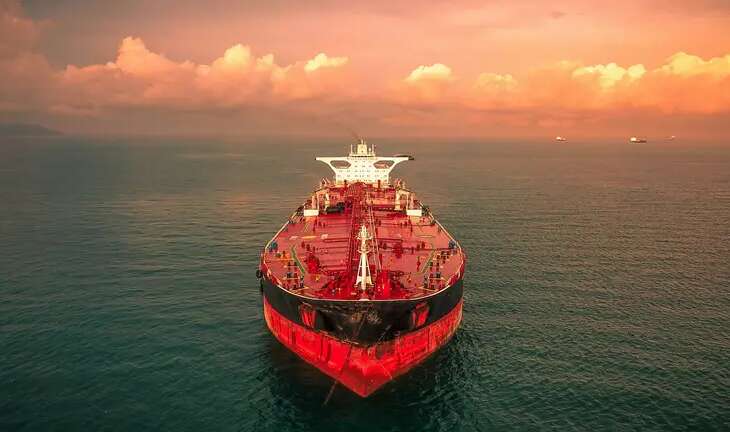
RF shadow fleet is expanding its capacity despite Western sanctions: list of vessels
Russia continues to expand its shadow fleet, transporting Russian oil to world markets in violation of international sanctions.
Over the past year, Russia has increased the capacity of its shadow oil tanker fleet by almost 70%, the Financial Times reports, citing a study by the KSE Institute. This allows Russia to actively maneuver in global oil markets, financing its aggression against Ukraine.
In June 2024, the volume of Russian oil transported by tankers that bypass sanctions increased to 4.1 million barrels per day, compared to 2.4 million barrels in June 2023.
This trend has emerged against the backdrop of attempts by the US, EU, Japan, and Canada to restrict Russian exports by imposing sanctions on global insurers and shipowners. However, Russia has created an alternative system of energy commodities delivery, investing about $10 billion in a fleet that operates outside the official insurance and regulation markets.
"In June 2024, the shadow fleet was already transporting 70% of Russian oil, which provided 89% of total crude oil exports and 38% of oil product exports by sea. This indicates that most of Russia’s oil is traded above the $60 per barrel limit set by the G7 countries, allowing Russia to circumvent sanctions and generate revenue to finance the war."
According to Anatolii Amelin, co-founder of the Ukrainian Institute for the Future, in the past two weeks alone, Russia’s shadow fleet has brought in an additional 2.6 billion euros to finance the war in Ukraine
"At least 21 of the 72 tankers that were sanctioned by the US, EU, and UK have started transporting Russian oil again since April 2024, according to Bloomberg estimates. Most of the crude oil cargoes were headed to China, with about a third shipped to India. The first tankers were loaded in Novorossiysk, but the last cargoes were loaded in almost all Russian export ports," Amelin emphasizes.
According to KSE estimates, the core of Russia’s shadow fleet consists of 45 oil tankers and 41 oil product tankers. Of these, only 8 vessels are under US, EU, or UK sanctions. At the same time, since the beginning of 2024, Russia has managed to attract 74 new shadow tankers for oil transportation.
Strategy to circumvent sanctions: change of flags, names and owners.
At the same time, Russia uses complicated schemes to disguise the ownership of its shadow fleet vessels. The data on the type, flag, basing, and registration of these vessels allow us to identify several common features.
Most of the tankers sail under the "flags of convenience" of countries such as Panama, Palau, or Gabon, which allows them to avoid international regulations. Some vessels change their names and registrations to hide their ties to Russia and reduce scrutiny from government regulators and insurers.
In addition, such vessels are often managed through companies registered in offshore jurisdictions, such as the Marshall Islands, which makes it difficult to identify the real owners and ultimate beneficiaries.
According to intelligence gathered by the KSE, a significant number of these courts are owned and operated by a number of shell companies in India, Mauritius, the UAE and other jurisdictions. These companies are likely to be ultimately controlled by Tahir Garayev, the founder of 2Rivers (formerly Coral Energy), and Etibar Eyyub.
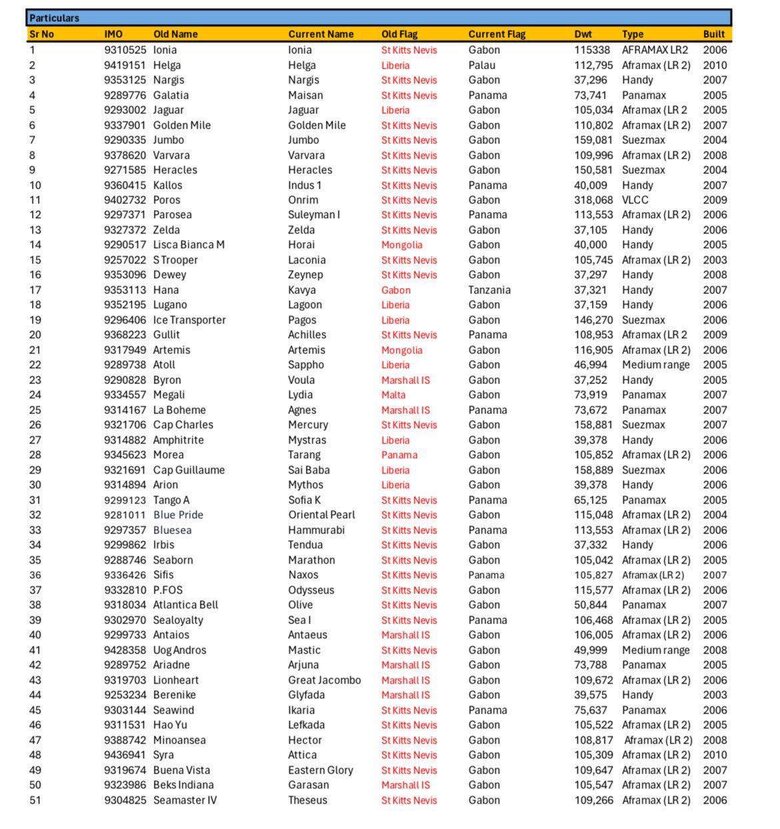
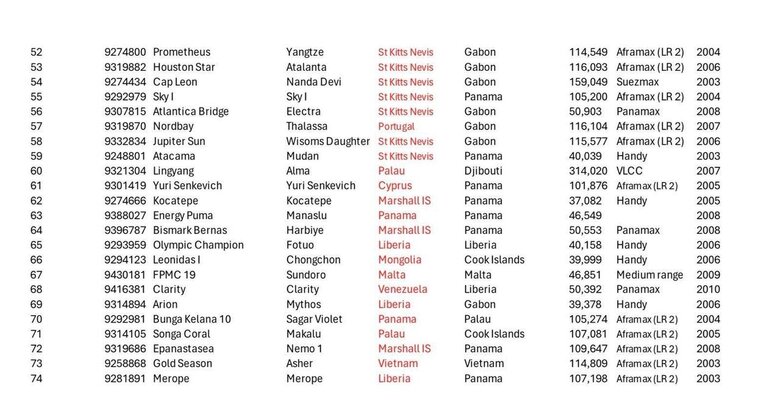
Examples of vessels that help to circumvent sanctions
INDUS 1 (IMO 9360415) is a Panama-flagged oil product tanker built in 2007.
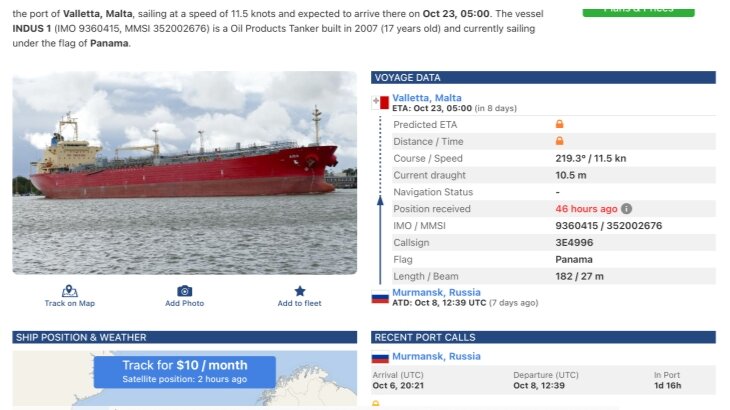 According to the VesselFinders website, on October 8, 2024, at 12:39 UTC, the vessel left the port of Murmansk and headed to Valletta (Malta), which is an important transshipment point for the further distribution of oil in Europe. The presence of the vessel in the port of Murmansk suggests that it loaded Russian oil despite the imposed restrictions.
According to the VesselFinders website, on October 8, 2024, at 12:39 UTC, the vessel left the port of Murmansk and headed to Valletta (Malta), which is an important transshipment point for the further distribution of oil in Europe. The presence of the vessel in the port of Murmansk suggests that it loaded Russian oil despite the imposed restrictions.
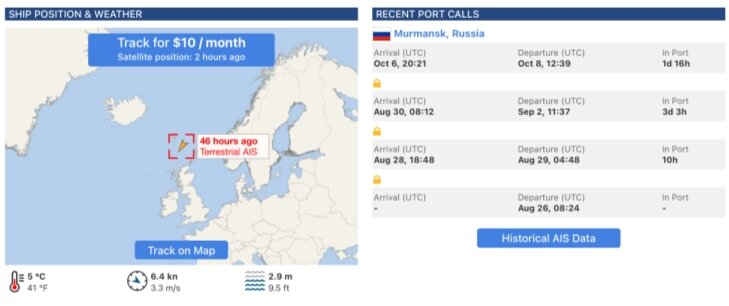
This is an example of how Russia continues to use the shadow fleet to ensure oil exports.
Also in 2023, this tanker also touched at the Russian port of Tuapse and the Moroccan port of Tanger Med, demonstrating its active participation in international transportation.
 JUMBO (IMO 9290335) is a Suezmax Gabon-flagged tanker capable of carrying large volumes of oil.
JUMBO (IMO 9290335) is a Suezmax Gabon-flagged tanker capable of carrying large volumes of oil.
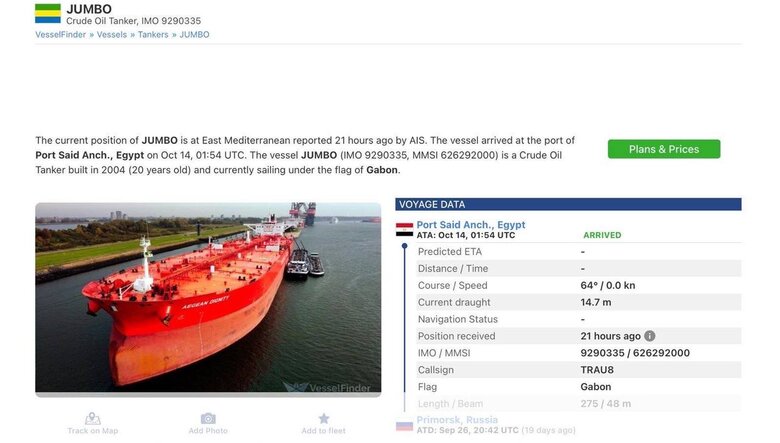
According to information from VesselFinders, at the time of data monitoring, JUMBO arrived at the vessel anchorage of Port Said (Egypt) on October 14, 2024 at 01:54 UTC, preparing to sail through the Suez Canal. The vessel’s further route is not indicated in the AIS system, which may indicate an attempt to conceal its final destination.
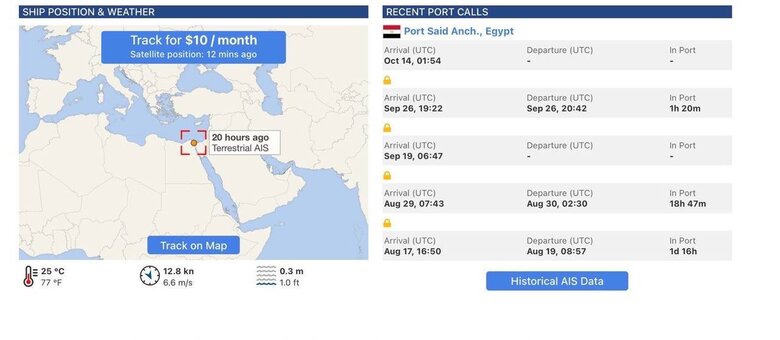
If the JUMBO passes through the Suez Canal, it can deliver oil to ports in the Red Sea, Persian Gulf, or Indian Ocean. If it stays in the Mediterranean, it could touch at ports strategically important to Russia, such as Tartus (Syria), where the Russian naval base is located.
These routes indicate that the JUMBO is actively involved in the transportation of oil from Russia and is likely awaiting further instructions on a route through the Suez Canal or inside the Mediterranean.
The vessel also visited the ports of Ust-Luga in Russia and Sidi Kerir in Egypt, indicating that it was involved in the transportation of Russian oil.
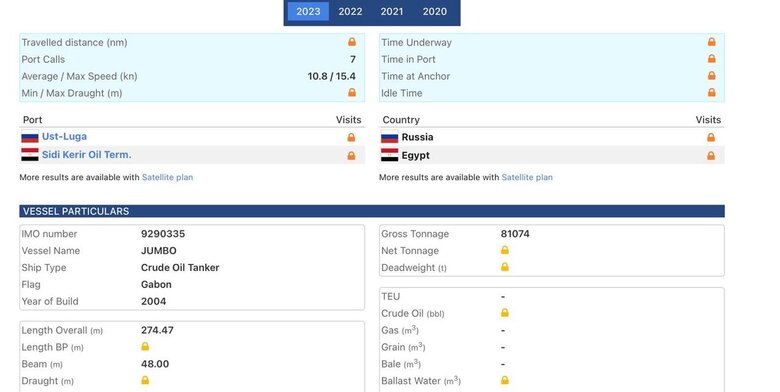
The IONIA (IMO 9310525) is another Gabon-flagged tanker that regularly sails through the Suez Canal and helps Russia transport oil.
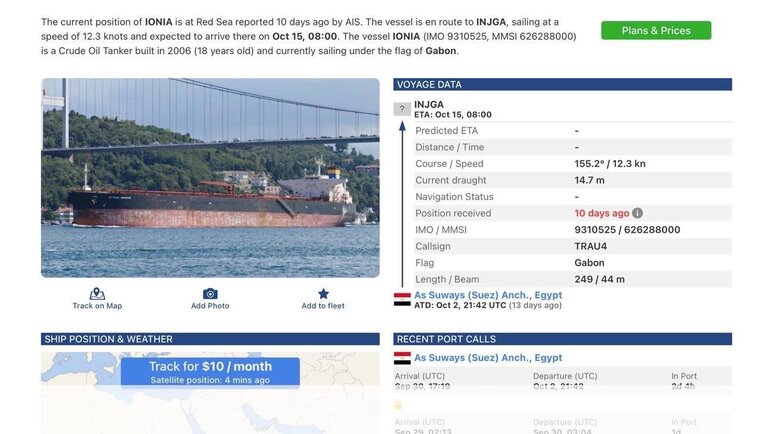
According to VesselFinders, on 2 October 2024 at 21:42 UTC, IONIA left the vessel anchorage of the port of Suez (Egypt) and sailed to its destination INJGA with an expected arrival time of 15 October 2024 at 08:00.
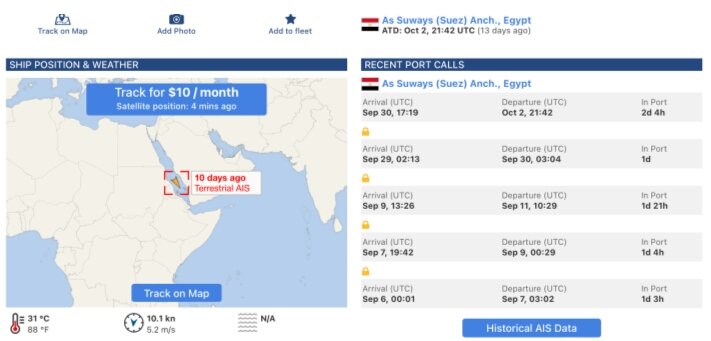
IONIA’s movements through the Suez Canal and regular touches at Russian ports indicate its role in the logistics network that ensures Russian oil exports despite international sanctions.
And in 2023, this tanker touched at the Russian port of Primorsk and the Indian port of Sika, indicating its possible role in transporting Russian oil to Asian markets.

Examples of "shadow fleet" tankers such as INDUS 1, JUMBO and IONIA demonstrate that Russia continues to successfully transport oil despite the sanctions. The use of "flags of convenience," offshore companies, and regular route changes allow these vessels to avoid regulations and continue to export Russian oil and oil products.
This undermines the effectiveness of the sanctions policy and demonstrates the insufficiency of current measures. To stop the financing of the war in Ukraine, the international community must strengthen measures against the Russian shadow fleet. It is necessary to introduce stricter monitoring of maritime transportation, including tracking the routes of vessels operating under "flags of convenience" and strengthening sanctions against offshore companies that disguise the real owners of tankers. Only comprehensive measures will be able to cut off the flow of oil from Russia and deprive it of resources to continue the war.
Topics: PetroleumRussiaTankersOil

Comments:
comments powered by DisqusЗагрузка...
Our polls
Show Poll results
Show all polls on the website











